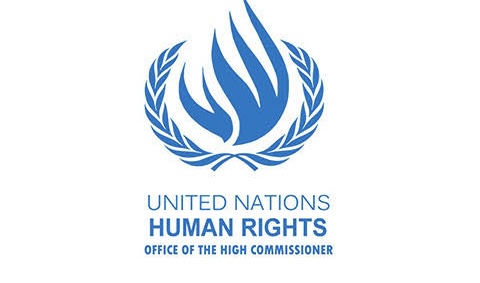Reparatory justice key to ending racism against Africans, descendants: UN

Governments, academia, and other stakeholders must “double down on delivering reparatory justice” for people from the African diaspora, the UN human rights office, OHCHR, said on Wednesday.
OHCHR, in a report, said doing so is key to dismantling systemic racism that is rooted in legacies of slavery and colonialism.
The UN human rights office said actions for reparatory justice must include formal apologies, truth-seeking, memorialisation and education measures, medical and psychosocial support, and compensation.
For the most part, the report found that, despite some rollback of commitments to racial justice, measures taken by states, businesses, religious groups, universities, museums, and others remained limited.
“To deliver reparatory justice, states and other actors must implement a comprehensive approach that includes reparations in various forms,” UN High Commissioner for Human Rights Volker Türk said.
“To be truly effective, this approach must squarely consider the web of links between the past and the present—at the individual and societal levels, in all areas of life.
“This is in order to dismantle unjust structures and systems designed and shaped by the past,” Mr Turk said.
Mr Türk cautioned against a “one-size-fits-all approach,” as reparatory justice should respond to the demands of affected communities.
“Initiatives and processes should be grounded in history and local context, respond to evolving demands of communities, and centre the specific experiences of women of African descent in particular,” he said.
The report recommended that Africans and people of African descent must guide the design and implementation of these measures through meaningful, inclusive, and safe participation.
It also highlighted initiatives already underway. For example, some countries have reviewed public spaces to identify, remove, or contextualise statues and place names linked to persons who were involved in the transatlantic slave trade.
Museums in several European countries are also taking steps to address their collections’ links with the past.
The restitution of cultural heritage is ongoing, including the return of so-called “Benin bronzes”, centuries-old sculptures and carvings from what is now Edo State in Nigeria.
Additionally, some academic institutions have carried out or funded external research into their own history, issued apologies, advanced educational opportunities for communities, and created memorials.
Some business enterprises have also taken clear steps to acknowledge their links with the past.
“Claims for compensation have been lodged before courts in multiple jurisdictions, and associated legal arguments have bolstered wider public movements and fostered political pressure for change,” the UN rights office added.
The report called for further research and policy proposals on broader structural and systemic issues.
These include areas such as climate and environmental justice, as well as reforms to address the shortcomings of development aid and the international financial and governance architecture.
(NAN)
We have recently deactivated our website's comment provider in favour of other channels of distribution and commentary. We encourage you to join the conversation on our stories via our Facebook, Twitter and other social media pages.
More from Peoples Gazette

Agriculture
FG tasks ECOWAS on leveraging financing strategies for agroecology
The federal government has urged stakeholders in the agriculture and finance sectors in the West Africa region to leverage financing strategies to enhance agroecology practices

Politics
Katsina youths pledge to deliver over 2 million votes to Atiku
“Katsina State is Atiku’s political base because it is his second home.”

States
Ex-convict bags one-month jail term for robbing motorist
The ex-convict pleaded guilty to the charges preferred against him.

States
Woman, 65, arraigned over alleged theft of five-year-old boy in Anambra
The chief magistrate adjourned the case until October 15 for trial.

Hot news Home top
Tinubu embarks on 10-day working leave in Europe days after trips to Brazil, Japan
Mr Onanuga said that the vacation would last for 10 working days.

World
WHO urges Nigerian govt to allocate 20% of budget to health sector
Mr Janabi described Nigeria’s recent health sector reforms as timely and commendable.

States
Gov Soludo urges Nigerians to embrace data integrity, digitisation for health reform
Mr. Soludo stated that one of Nigeria’s biggest challenges is the lack of consolidated data on health expenditure across all levels of government.

World
Israeli cycling team received death threats this season: Official
In view of the pro-Palestinian protests during this year’s Vuelta a España, he asked for “the team not to be attacked.”








